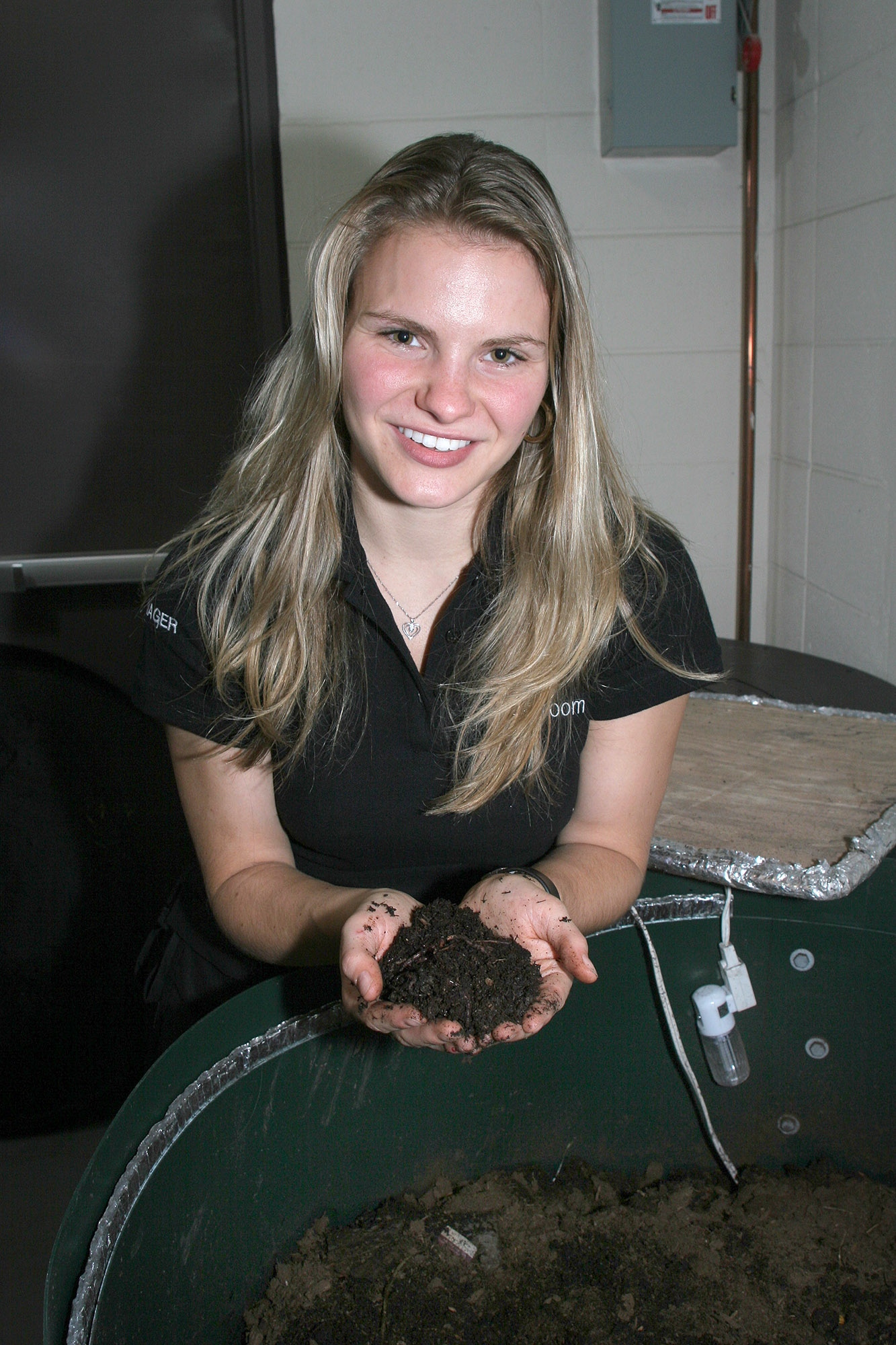Jul 25, 2019
This summer job helped spark Michele Romanow's career as a serial entrepreneur
, BNN Bloomberg
Michele Romanow's path from fisheries to fintech
This is part of BNN Bloomberg’s series on the formative summer jobs that helped shape the careers of Canadian business leaders.
Being part of an oil-and-gas family, Michele Romanow says it was only natural that her 19-year-old self was bent on becoming a “bleeding heart environmentalist.”
“But I was realistic about this,” said Romanow, co-founder of venture capital firm Clearbanc and an investor on CBC’s Dragon Den, in a phone interview with BNN Bloomberg. “I was like, ‘Let’s actually see if we can build a sustainable business that makes money. And we’ll take a simple industry like coffee, which should be fairly high margin, and try to do things totally different.”
In 2007, after finishing her third year as an engineering student at Queen’s University in Kingston, Ont., she opened The Tea Room, an on-campus, zero-consumer-waste café run by students. She spent the summer learning everything she could about coffee, building a business plan, and constructing the shop. It opened at the start of the next school year. It still operates to this day.
“The coolest thing we had were vermicomposters,” Romanow, now 34, said. “You have these red wiggler worms and they actually eat through all the food waste and they produce really valuable soil. We were doing all of our own composting, and then we could actually sell the soil to farmers.”

The café’s success caught the university’s attention, and eventually led to Queen’s School of Business inviting her to join its MBA program.
She accepted, and went on to pursue other ventures. She and two co-founders later opened a fishery in New Brunswick, which thrived until the recession hit. She then tried her hand at several failed businesses, including an office fruit delivery service.
Romanow eventually landed a job at Sears, where she says she watched the “blowing up” of e-commerce disrupt traditional retailers. That prompted her to build an online shopping platform, which eventually became Buytopia. From there, “the treadmill just started going.”
Below, Romanow reflects on how starting The Tea Room — instead of finding a traditional summer student gig — shaped her career as a serial entrepreneur.
Q: What was the hardest thing about getting it off the ground?
A: I didn’t really know how to start a business. I was flying by the seat of my pants. Certainly figuring out how to get the capital to do this. It was cobbling together university money, grants, fundraisers and [money from] business plan competitions.
Q: What did the job pay?
A: I don’t remember what I paid myself, probably minimum wage. I certainly wasn’t doing this for the money. I was doing it for the experience.
Q: How successful was it?
A: It’s there 12 years later, which I think is pretty cool. It remains student-run. Each incoming class gets a chance to run and manage and build the business. I think that’s successful for a project from when I was 20.
Q: What impact did The Tea Room have on your career?
A: I think if I hadn’t had that experience so early in my career, it would have been much harder to become an entrepreneur later. I’ve always been exceptionally grateful for that. It’s like I caught the bug.
Q: What were the most valuable lessons you learned from starting that business?
A: It reinforced that if you have a vision, you can go out and build something and the market will respond. You don’t need to know everything before you start doing it. And I think the last and most important thing is, it just taught me how fun and satisfying a business can be.
Q: How have you dealt with failure?
A: The first thing you need is great co-workers. You can pull each other up when you need to.
Then I had to develop a peer group of other founders. One of the things that happens as an entrepreneur is you have an idea and then tell all of your smart friends and ask for their feedback. And what all those people are going to do is point out all of the reasons your business is probably going to fail. They’re going to point out all of the risk factors.
That’s actually not good advice, because you never win as an entrepreneur by preventing risk. You almost always win as an entrepreneur by getting a first couple of wins. So I needed to surround myself with other entrepreneurs. Every time I felt like my business wasn’t working, they reminded me that their businesses almost didn’t work for the first 10 years and to just really focus on what matters.
Q: What’s your advice to young people who want to create their own opportunities?
A: You just have to start. You jump in the water, and then figure out how to swim. If you don’t start, you can lose yourself in the analysis-paralysis of, ‘Okay, I’m not sure if this is the right idea.’ There are no perfect ideas. There’s no perfect time to start a business.
Great innovations come from a ton of iterations, just trying a lot of things and refining them, as opposed to one big idea that we get right the first time.
This interview has been edited and condensed for clarity.



